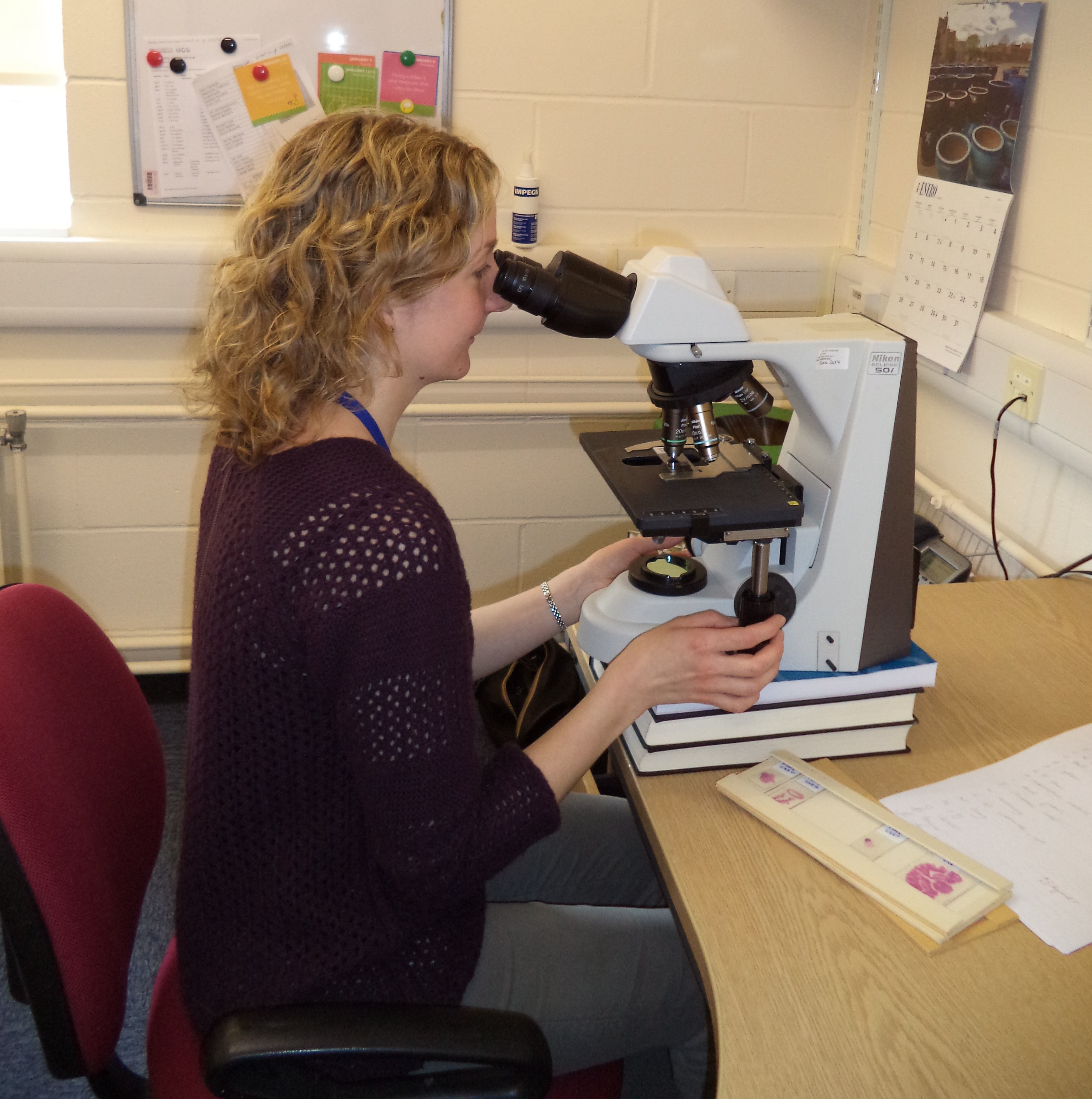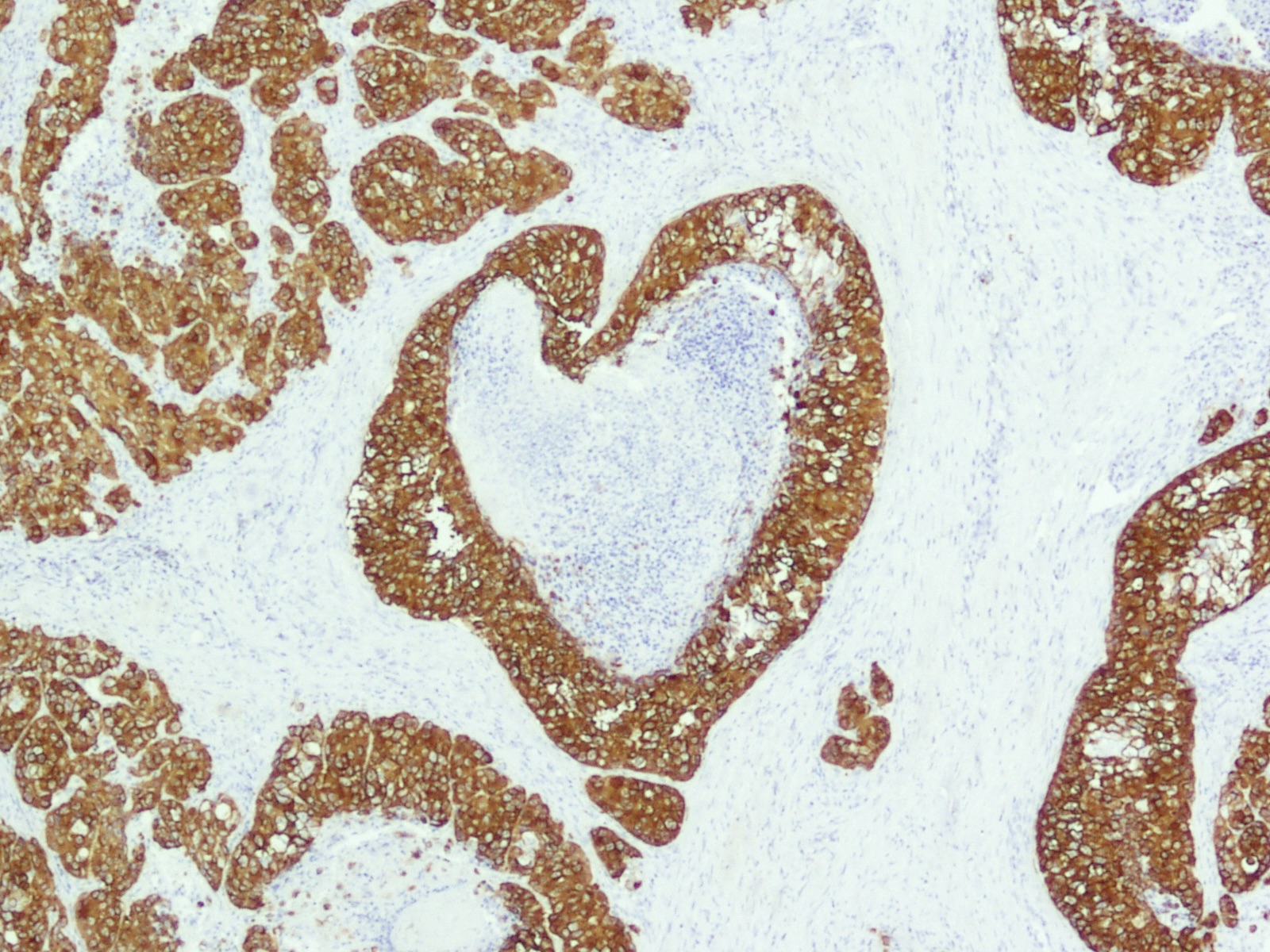
Dr Katherine Hughes
Position: Lecturer
Personal home page:
http://www.research.vet.cam.ac.uk/research-staff-directory/systems-pathology/Kate-Hughes
PubMed journal articles - click here
I study the mammary gland and tumours developing in this tissue. My particular field of interest encompasses the interactions between different cell types within the mammary gland during mammary gland involution, the process of regression at the end of lactation. I am especially interested in the role of the transcription factor Stat3, both within normal and neoplastic mammary epithelial cells, and in immune cells.
I am a Specialist in Veterinary Anatomic Pathology, and in parallel with my research, I spend a proportion of my time working as part of the diagnostic veterinary anatomic pathology team, providing diagnostic pathology support to the Queen’s Veterinary School Hospital and receiving cases from external practices. In this context I work with, and supervise, the residents in veterinary anatomic pathology. I have a particular interest in neoplasia arising in veterinary species, and in mastitis in ruminants. I also work with other research groups, providing specialist histopathology support and therefore contributing to diverse projects allied to my interests in the fields of oncology and immunity.
Mammary gland; macrophages; Stat3; histopathology
Symplectic Elements feed provided by Research Information, University of Cambridge
Google Scholar: https://scholar.google.co.uk/citations?hl=en&user=VE7eAx0AAAAJ&view_op=l...
Stat3 modulates chloride channel accessory protein expression in normal and neoplastic mammary tissue. Hughes K*, Blanck M, Pensa S, Watson CJ. Cell death & disease. 2016; 7 (10), e2398.
Over-expression of the oncostatin-M receptor in cervical squamous cell carcinoma is associated with epithelial-mesenchymal transition and increased metastasis. Kucia-Tran J, Tulkki V, Smith S, Scarpini C, Hughes K, Araujo A, Yan K, Botthof J, Pérez-Gómez E, Quintanilla M, Cuschieri K, Munoz-Caffarel M, Coleman N. Br J Cancer. 2016; 115: 212–222.
Anaplastic large cell lymphoma arises in thymocytes and requires transient T cell receptor expression for thymic egress. Malcolm T, Villarese P, Fairbairn C, Lamant L, Trinquand A, Hook C, Amos Burke G, Brugières L, Hughes K, Payet D, Merkel O, Schiefer A, Ashankyty I, Mian S, Wasik M, Turner M, Kenner L, Asnafi V, Macintyre E, Turner SD. Nat Commun. 2016; 7, article number: 10087.
Estrogen receptor and Signal Transducer and Activator of Transcription 3 expression in equine mammary tumors. Hughes K, Scase TJ, Foote, AK. Vet Path. 2015; 52 (4): 631-634.
Conditional deletion of Stat3 in mammary epithelium impairs the acute phase response and modulates immune cell numbers during post-lactational regression. Hughes K, Wickenden J, Allen J, Watson C. J Pathol. 2012; 227 (1): 106–117.
Prognostic histopathological and molecular markers in feline mammary neoplasia. Hughes K, Dobson J.The Veterinary Journal. 2012; 194 (1):19-26.
















